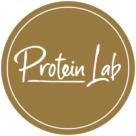When it comes to optimizing your fitness results, protein is a crucial player. It’s the cornerstone of muscle repair, recovery, and growth. But have you ever considered how the timing of your protein intake might influence your gains? This blog will delve into the science behind protein timing and offer actionable insights to help you make the most of your protein consumption for optimal performance.
The Role of Protein in Muscle Recovery
To understand protein timing, we first need to recognize why protein is essential. During exercise, especially strength training, your muscles undergo microscopic damage. This damage is a natural part of the muscle-building process. In response, your body uses protein to repair these tears, leading to muscle growth and increased strength.
Research indicates that the body is particularly receptive to protein during specific times, such as:
- Post-Workout: Consuming protein shortly after exercising can help promote muscle protein synthesis (MPS) and accelerate recovery.
- Throughout the Day: Regularly spaced protein intake can also play a critical role in maintaining muscle mass and supporting overall health.
The Anabolic Window: Fact or Fiction?
You might have heard of the “anabolic window,” a period right after a workout when your muscles are primed for nutrient absorption. While the specifics of this window are often debated, the consensus is that consuming protein after your workout is beneficial. Here’s why timing matters:
-
Post-Workout Recovery:
- Studies suggest that consuming protein within 30 minutes to two hours after your workout can enhance recovery. This is when your muscles are most receptive to nutrients. A convenient way to meet this need is through a protein shake, like those offered by ProteinLab. They provide an efficient and delicious way to refuel post-exercise.
-
Restoring Muscle Glycogen:
- Alongside protein, carbohydrates play a role in recovery. Consuming a combination of protein and carbs post-workout helps replenish glycogen stores and further aids in recovery. A protein shake with added carbs can be an excellent option here!
Daily Protein Distribution: The Bigger Picture
While post-workout protein is essential, it’s also important to consider how you distribute your protein intake throughout the day. Research shows that spreading your protein consumption across meals can lead to better muscle retention and growth. Here are some key points to consider:
-
Consistent Intake: Aim for a balanced protein intake throughout the day, ideally consuming 20-30 grams of protein per meal or snack. This approach helps maintain elevated amino acid levels in your bloodstream, promoting muscle repair and growth.
-
Pre-Workout Protein: Don’t overlook the benefits of protein before your workout. Consuming protein in the hour leading up to your workout can also help set the stage for optimal muscle recovery and growth post-exercise.
Factors Influencing Protein Timing
-
Workout Intensity: The more intense your workout, the more critical protein timing becomes. Higher intensity training often results in greater muscle damage, necessitating quicker protein consumption to kickstart recovery.
-
Your Goals: If your primary goal is muscle gain, focusing on post-workout protein intake is crucial. Conversely, if you’re more interested in general fitness or weight loss, regular protein intake throughout the day might suffice.
-
Body Composition: Your current muscle mass and body composition can also dictate your protein needs. Individuals with more muscle mass may require higher protein intake to support muscle maintenance and growth.
Conclusion: Tailoring Protein Timing to Your Needs
Understanding the importance of protein timing can be a game-changer in your fitness journey. While immediate post-workout protein consumption is vital for recovery, distributing protein intake throughout the day can enhance muscle retention and growth.
Incorporating convenient options like ProteinLab shakes into your daily routine can help you meet your protein needs effectively. By tailoring your protein timing to your workout intensity, fitness goals, and personal preferences, you’ll set yourself up for success in achieving your fitness aspirations.
So, whether you’re an athlete, a fitness enthusiast, or someone simply looking to improve your health, paying attention to when you consume protein can make all the difference. Get started today and fuel your body for optimal performance!

